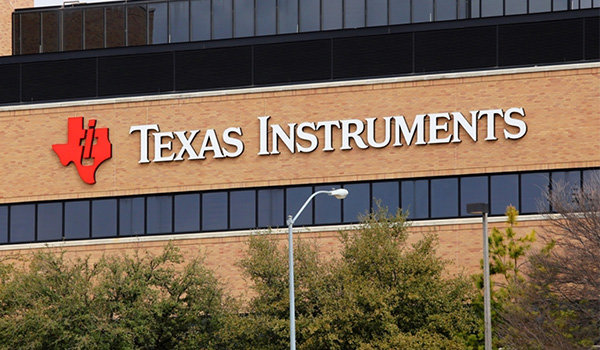

 News
News Industry News
Industry NewsOn August 16th local time, the US Department of Commerce reached a groundbreaking preliminary agreement with analog chip giant Texas Instruments Inc., deciding to provide the company with up to $1.6 billion in grants and $3 billion in loans. This funding will be used to support the construction of three new factories by Texas Instruments in Utah and Texas, which is one of the latest policies adopted by the US government to enhance domestic chip production capacity.
In recent years, the global semiconductor industry has faced unprecedented challenges. Due to factors such as the pandemic and geopolitics, the shortage of chips has become increasingly severe, affecting the production of multiple industries from automobiles to consumer electronics. To cope with this situation, the US government is actively promoting the development of domestic chip manufacturing industry to reduce dependence on foreign supply chains. As a leading global manufacturer of analog and embedded processing chips, Texas Instruments' expansion plan not only aligns with national strategy, but also brings new impetus to the recovery of the US economy.

According to a statement from the US Department of Commerce, Texas Instruments will use this funding to invest over $18 billion by 2030 to build three new manufacturing facilities. Two of the factories will be located in Texas, while the other will be located in Utah. The construction of these new factories is expected to create over 2000 manufacturing jobs and inject new vitality into the local economy.
In addition, Texas Instruments will receive $6 billion to $8 billion in investment tax credits and $10 million in labor development funding from the US Treasury Department. These funds will not only be used for factory construction, but also help the company invest in labor training and skill enhancement, ensuring that employees can master the latest production technology and equIPMent operation skills.
Texas Instruments CEO Haviv Ilan said, "We plan to increase our internal manufacturing rate to over 95% by 2030 to achieve higher production autonomy and stronger market competitiveness." This goal reflects the company's strategic intention to seek steady development in the current global economic environment. With the rapid advancement of technology, the demand for analog and embedded processing chips in the market is increasing day by day. Texas Instruments hopes to meet the growing demand of customers by expanding production capacity.
This cooperation with Texas Instruments marks an important step for the United States in promoting the revival of the semiconductor industry. The US Department of Commerce stated that increasing domestic chip production capacity can not only enhance a country's economic competitiveness, but also strengthen national security and reduce dependence on external supply chains. This strategic adjustment is particularly important in the current international situation, especially in the context of increasingly fierce technological competition between the United States and China.
The expansion plan of Texas Instruments will provide more job opportunities for the US semiconductor industry, while also promoting research and innovation in related technologies. With the completion of the new factory, the company is expected to have stronger production capacity and higher technological level, which will enable it to provide customers with higher quality products and services.
This move by Texas Instruments will have a profound impact on the entire industry. With the continuous progress of modern science and technology, the application field of chips is expanding rapidly, from smart home to autonomous vehicle, almost covering all aspects of people's lives. Therefore, improving the production capacity and research and development level of chips will help promote the progress of the entire technology industry.